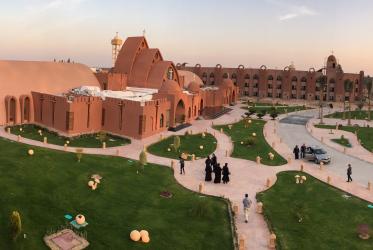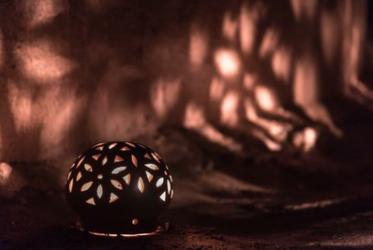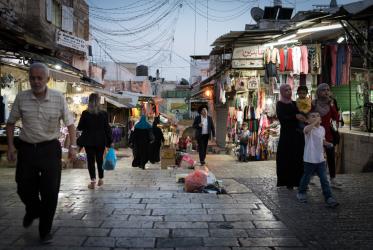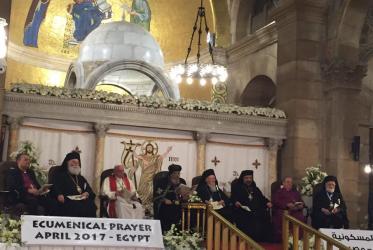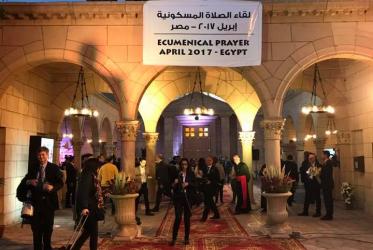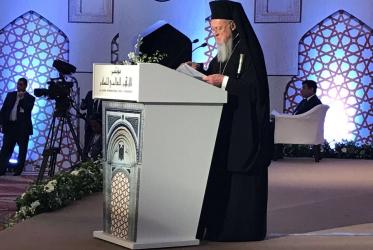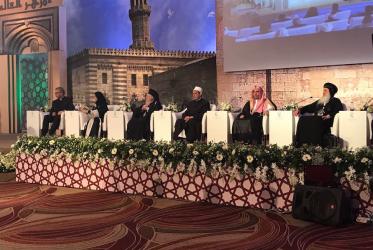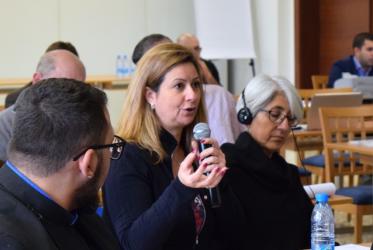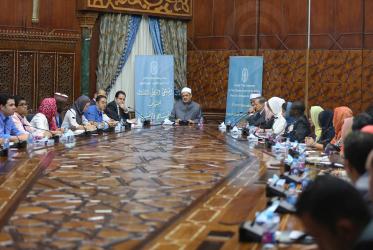Displaying 1 - 20 of 24
A faith-based, holistic approach to HIV and AIDS-care
13 March 2019
WCC condemns attack in Egypt
29 December 2018
WCC condemns attack on Christians in Egypt
02 November 2018
WCC mourns passing of Metropolitan Anba Bishoy of Damietta
03 October 2018
Women in development create space for hope in Egypt
15 June 2017
‘Love is stronger than hate’
02 May 2017
Historic ecumenical prayer in Egypt for peace and unity
30 April 2017
“There are no strangers here” – Saint Irenaeus a key to unity?
19 December 2016
Churches’ diaconal action in the Middle East analyzed
01 December 2016
Pilgrimage and youth
28 June 2016

